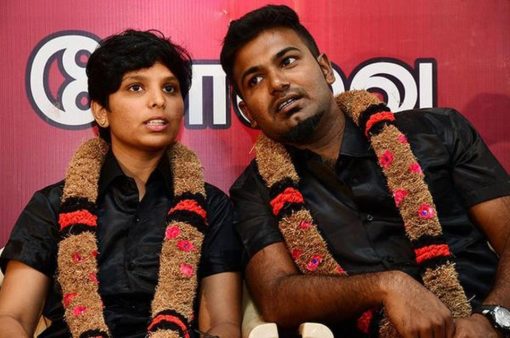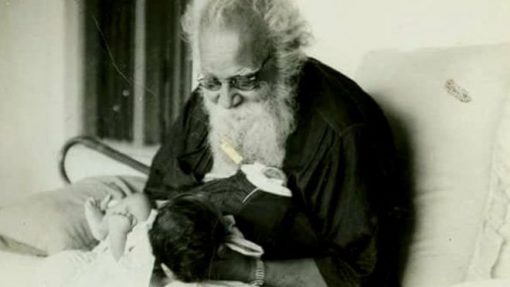The Suya Mariyadai Iyakkam (Self-Respect Movement) is perhaps among the most radical and progressive aspects of the Dravidian Movement. The Dravidian Movement itself is often traced back to the founding of the South Indian Liberal Federation in 1916. In the then Madras Presidency, it consisted of an anti-Brahmin position by people coming together around a common south Indian identity. By the following year, it became the Justice Party. The history of the Justice Party is long-winded: it ran into several hurdles due to varying linguistic identities within it and pro-British leanings that did not stand the test of Independence sentiments. It is only meaningful to this discussion in so far as that it soon was not a federation of identities based on several south Indian languages, but only Tamil and would later become closely associated with Periyaar and the Suya Mariyadai Iyakkam. Meanwhile, Periyaar who until 1925, had been a part of the Tamil Nadu Congress Committee (TNCC) stepped down, feeling that there was a strong Brahmin bias within the party and that leaders like Gandhi were not doing enough for oppressed castes1. Between the mid-1930s and the 1940s, Periyaar began the Suya Mariyadai Iyakkam, took over the leadership of the Justice Party, threw out British loyalists and brought in the demands of his movement instead-creating a split. Those who stayed with him, stayed under the banner of the Dravida Kazhagam (Federation). The remains of the Justice Party eventually died out.
The call for a separate Dravidian homeland, the anti-Hindi, anti-Brahmin, anti-British stance is well-known. Periyaar was an iconoclast for whom all organised religions were a problem, but he harboured a special dislike for Hinduism. To him the Sanskritised Brahmanical stranglehold was what endorsed caste-based discrimination and patriarchy2. His travel to the Soviet Union and Europe in the 20s and 30s3 made him sympathetic towards socialism, communism, and anti-Imperialist movements. Perhaps, this contributed to his belief that the desire for private property and patriarchy were closely allied4. In the chapter on marriages in his book Penn Yean Adimaiyanaal (How Women were Enslaved), he calls the ritualism and especially the term “deyviga kalyanam” – loosely, a wedding ordained by the gods themselves –a scam and really just a means to keep a woman “shackled” to her husband.5 He despised the notion of a nuptial contract that kept a woman subservient to a man in every way including sexually. It is interesting to note that born E V Ramaswami Naicker, he came to be called “Periyaar” first at the Tamil Nattu Permagalir Manadu (Tamil Women’s Conference), 1938 by Neelambikai Ammaiyar.6
The criticisms levied against Periyaar then and now though not without substance, can hopefully be seen alongside the lasting fractures he made within traditional Tamil society. The Suya Mariyadai Kalyanam was at once a rejection of oppressive gender and caste hierarchies. It recognises only marriage vows that accept both members as equal companions in life, doing away with the holy fires, priests, and any ritual that designates the woman as subordinate to her husband. It has become a sanctuary for inter-caste marriages. Speaking to the Indian Cultural Forum, Isai Inmban, representing the Periyaar Marriage Bureau in Chennai, tells us: “More than 90% of the weddings we conduct are inter-caste in which one of the couple is adi-Dravidar (the term for dalits used by the DK amongst others) and are eloping” He also added that, “the point is not only to reject caste and orthodoxy, it is ultimately to destroy it. It was also created on the principle that women specially should be able to retain their dignity (though “suya mariyadai” is translated as “self-respect” the essence of the Tamil term is dignity and the right to self-determination, as opposed to the indignities of caste-oppression.)” The vows are simple declarations of equality. Isai Inmban who also writes for the Tamil Journal, Vidutalai (Liberation) which was launched by Periyar and is still functional, recited them:
“Vaazhvil erpadum inmba, thunbangallil, sama pangerkkum, sama urimai padaitha, otra nanbargallaga vazhvom endru uruthi kuurugiren. Vaazhvil enidem irunthu enna enna urimigallai thangalluku ethirpaarka urmiyundo, athe urimaygallai eithirpaarka urimai enakum undu.”
The vow translates as, “In all of life’s joys and troubles, we swear to share equal responsibility and equal entitlement/right, living as firm friends/companions. Whatever privileges you have the right to expect of me in our future, I have equal right to expect the same of you”. The couple must be at least 21 and need to furnish name, age and address proof. They also have to be accompanied by four witnesses. A senior DK member presides over the ceremony as they exchange their vows and garlands.
C N Annadurai, Periyaar’s lieutenant of many years, broke away from the DK in 1949 over ideological differences, the aspiration for entering electoral politics (by his founding of the DMK), and a 72 year old Periyaar’s marriage to Maniamaal, a 25 year old party functionary. Despite this, when the DMK formed the state government in 1967 for the first time, he was instrumental in ensuring that the Suya Mariyadai Kalyanam was legally recognised. Under the Tamil Nadu Act 021 of 1967: Hindu Marriage (Tamil Nadu Amendment) Act, 1967, “an Act further to amend the Hindu Marriage Act, 1955, in its application to the [State of Tamil Nadu]. Whereas it is necessary to render valid suyamariyathai or seerthiruththa marriage” an incredibly progressive attempt at social reform passed into law.
While this looks like Tamil Nadu bounded forward towards social justice and reform, the continuing reality of caste and gender oppression is dire. The state ranks amongst those with the highest number of cases of caste atrocities registered. The latest report of the National Commission of Schedule Castes that is available on the website is for 2016-17. As per the report, based on NCRB (National Crime Records Bureau) data from 2015, 1782 cases were registered under the POA Act (Prevention of Atrocities Against Schedule Castes and Schedule Tribes, 1989) For some perspective I must add that the numbers from UP, Bihar, Rajasthan, Andhra Pradesh and Madhya Pradesh are much higher. In the same year, Tamil Nadu also features in the list of top ten states of ‘Incidents of riots on SCs by non-SCs’, coming up at the top three with 185 such cases. According to an analysis by IndiaSpend, conviction rates between the years 2006-2016 in Tamil Nadu are depressingly low – less than 10%. All of this begs the question, if these are the official figures, what are the unofficial cases/incidents of casteist violence and how many of them are due to inter-caste marriages?
November 2018, in Soolakondapalli, 13 kilometres from Hosur, a 25 year old Dalit man’s body clad in a blue T-shirt with the words “Jai Bhim” emblazoned on it, was found assaulted almost beyond recognition. In the following days his wife’s body, split open to “remove” a three month old foetus, her head shorn was also recovered. Swati belonged to the powerful Vanniyar caste and had been brutalised and murdered by her own family. The Vanniyar community who while on the one hand regularly prey on dalits, enjoy considerable political sway in the state. The Hindu reports that in 2016, in the AIADMK state government, 19% of the MLAs were Vanniyar. Caste continues to play too successful a role in state politics with various MBCs and OBCs warring it out and choosing allegiances based on it. This has in fact been one of the foremost criticisms of the Periyaarist and the rest of the Dravidian Movement, that it in many ways, abysmally failed the most marginalised communities within the state.
 Kausalya and her husband V Shakti | Image Courtesy: The Hindu
Kausalya and her husband V Shakti | Image Courtesy: The Hindu
In December last year, the wedding of anti-caste activist, Kausalya, came as a desperately needed act of resistance. Kausalya’s story is one of many despicable cases of “honour killings” – this euphemism for bigotry, brutality and murder remains baffling. Her first husband also a dalit, was set up on by men from her own family, who are from the Thevar caste. He was killed in the Udumalaipet market in the Coimbatore district in 2016. In 2017 her parents and others were finally lodged in the Coimbatore Central Prison. In December 2018, she did a Suya Mariyadai Kalyanam with parai drum artist and band member, V Sakthi at the Thanthai Periyaar Dravida Kazhagam office in Coimbatore. The parai drum always reviled by caste Hindus as unclean and symbolising an ill-omen as it is played traditionally by dalits at funerals, has now become a symbol of dalit resistance.
As the Suya Mariyadai Kalyanam was legalised as an amendment to the Hindu Marriage Act, it has to be registered under the same. The Periyar Mariage Bureau, which is run by DK functionaries, conducts the weddings and gives the couple a signed certificate that can be used to register their marriage. When asked what those of other faiths who wish for a Suya Mariyadai Kalyanam can do, Isai Inmban agreed that this a drawback. He told us that the DK has requested the DMK to make a provision for inter-religious marriages to also be included. He added that inspite of this, they offer what advice and assistance they can to inter-faith couples who are eloping, in terms of what legal options they have. Mr Inmban was confident that if the DMK were to return to power in the state, they would take the necessary steps. We will have to wait and see when the Legislative Assembly elections happen, if this indeed does make it into the party manifesto.
1. Ramaswami Naicker and the Dravidian Movement, Economic and Political Weekly, 1974, Mohan Ram
2. Tamil Separatism and Cultural Negotiation: Gender Politics and Literature in Tamil Nadu, Social Scientist, Vol. 27, Nos. 5-6, May-June 1998, Vijaya Ramaswamy, pg.65
3. Periyar: Prophet of the South, Tamil Characters: Personalities, Politics, Culture, A R Venkatachalapthy, Pan Macmillian India, Chapter 1, pg. 10
4 Vijaya Ramaswamy, 1998
5 Kalyana Viduthalai, Penn Yean Adimaiyanaal, Chapter 4, p.g. 32
6. Vijaya Ramaswamy, 1998

 Image Courtesy: BBC|Tamil
Image Courtesy: BBC|Tamil


